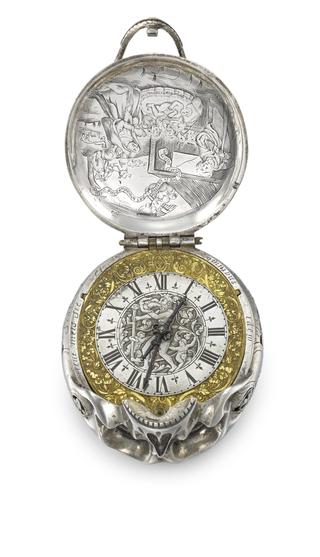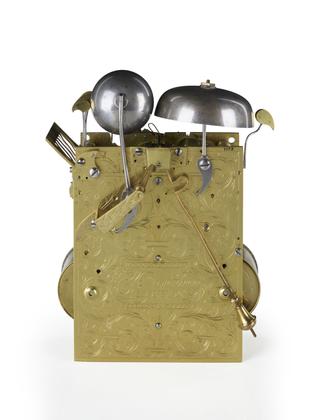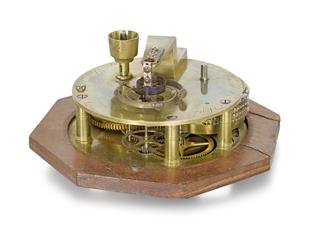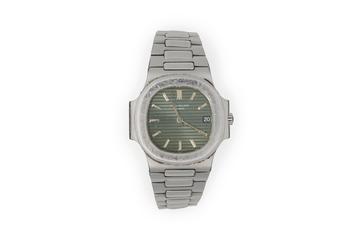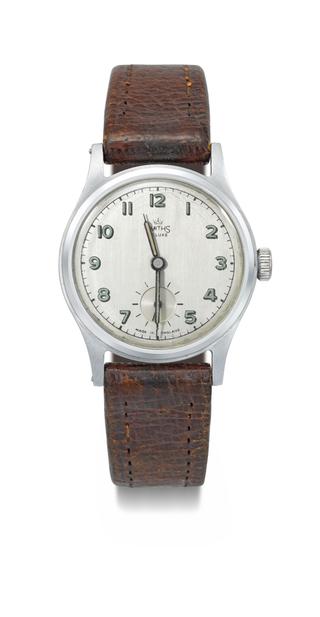
Rolling ball clock by E. Dent and Co
- maker:
- E Dent and Company




Rolling ball clock by E. Dent & Co, London c.1920. The escapement is operated by a ball rolling down a zig-zag path cut in a plate pivoted at its centre and which tilts as the ball reaches the end of its travel. The movement is housed in a brass cover designed as a Greek temple with four Corinthian columns. There are three dials in the pediment for hours, minutes, and quarter minutes. Seconds are also indicated. Spring driven.
This clock is derived from a type designed and patented by William Congreve in 1808, though similar clocks were recorded in London in the late 17th century. The clockwork is controlled by the regular movement of the plate beneath it. This can tilt only when the ball has rolled from one end to the other and released a catch. In a year the ball travels 2,522 miles. The system is not conducive to accurate timekeeping. Clockmakers Museum No. 689
Details
- Category:
- Clockmakers
- Collection:
- The Worshipful Company of Clockmakers
- Object Number:
- L2015-3562
- type:
- spring clock and rolling ball
- credit:
- Lent by the Worshipful Company of Clockmakers
